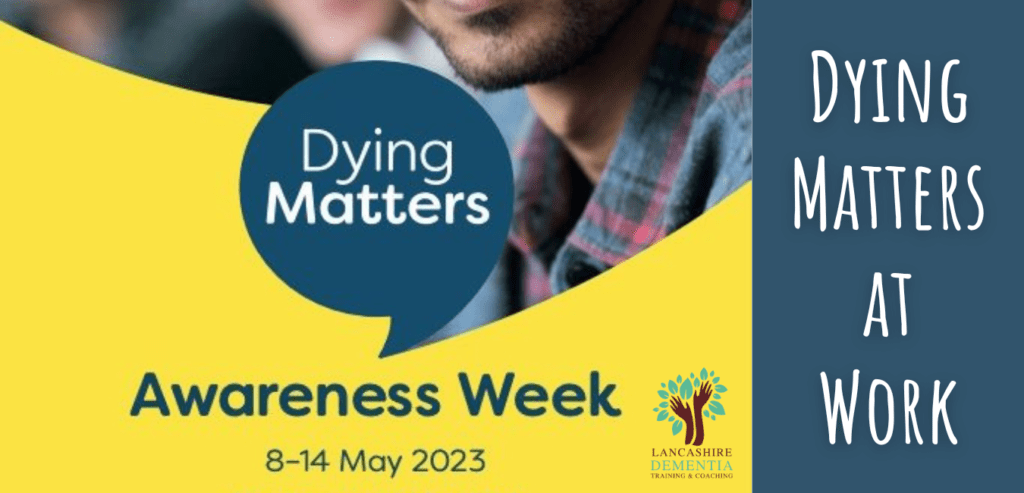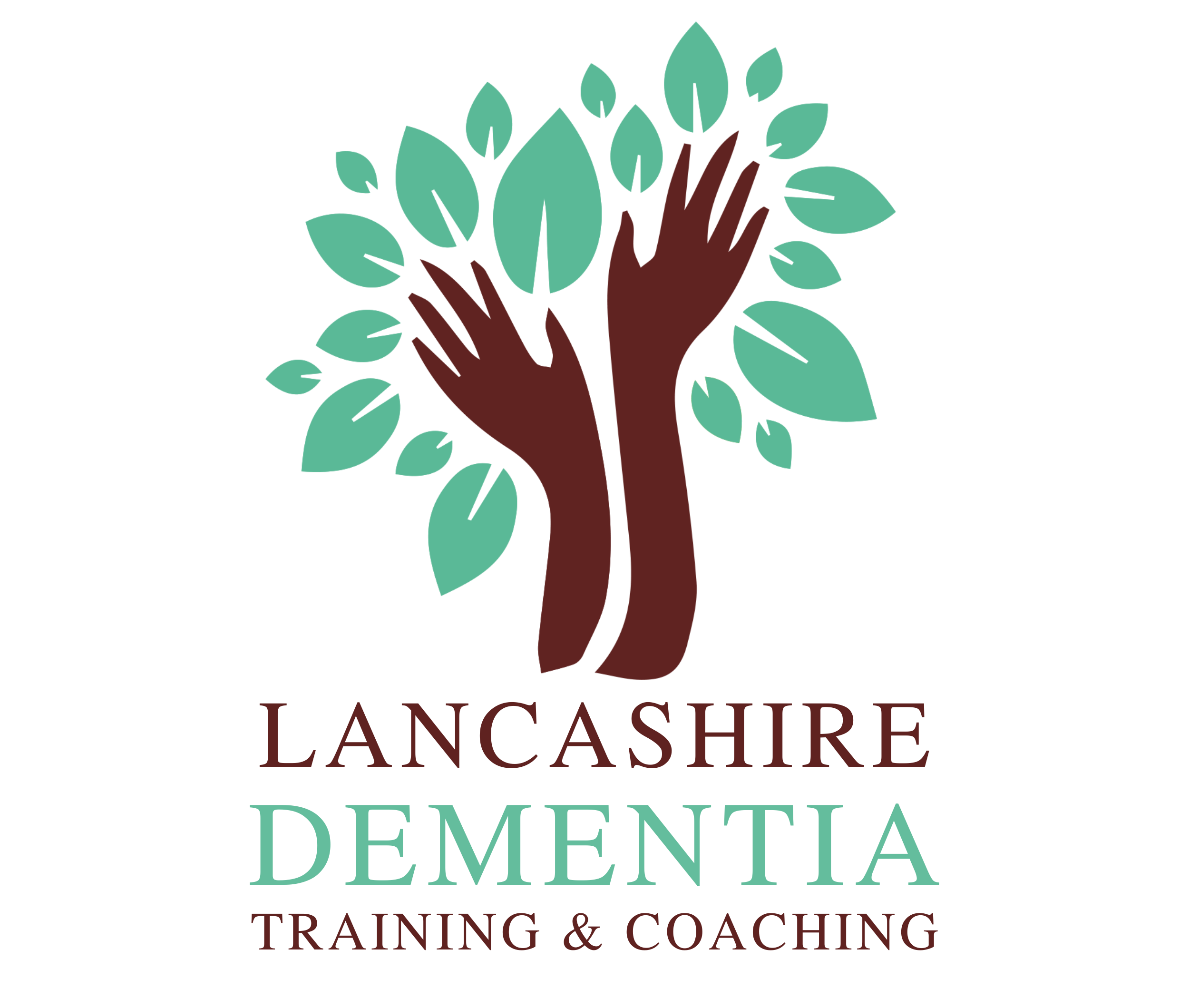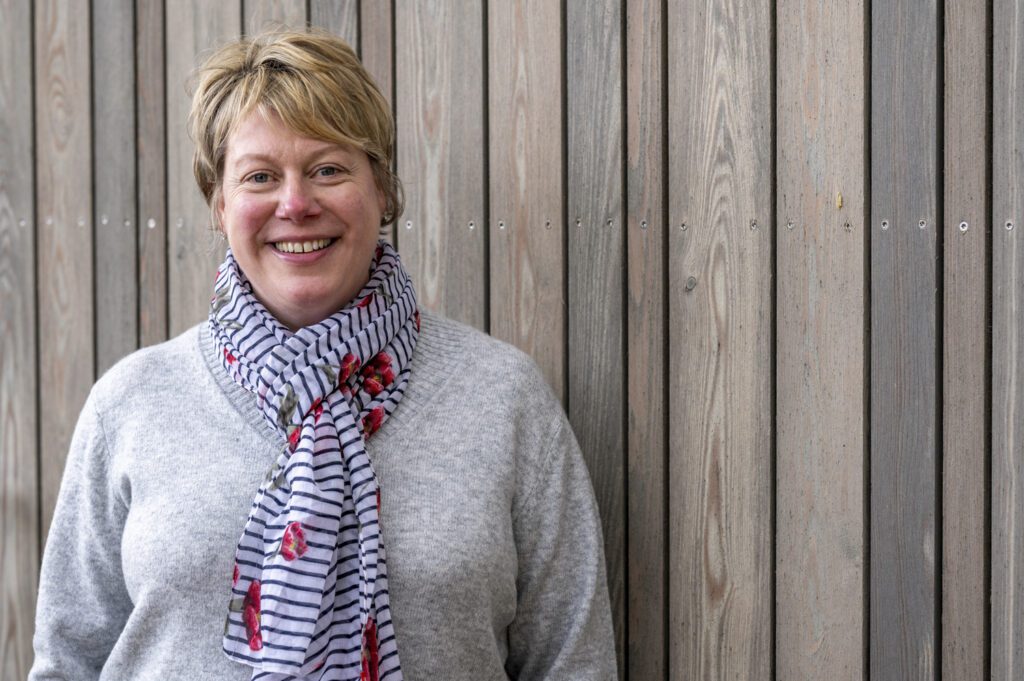Dying Matter Week (8th-14th May 2023)

Dying Matters at Work
57% of employees will have experienced a bereavement in the last five years and every day, more than 600 people quit work to look after older and disabled relatives. And yet, fewer than one in five managers feel very confident supporting someone they manage with a bereavement.
Most people who work in the health and social care sector want to. It’s a calling. We want to support others who are less fortunate, give back and enrich the lives of others. It’s a way of reducing the pain and suffering which we ourselves may have experienced.
There are many types of grief – here are the three main types which we may come across in the workplace.
Vicarious Grief
If you spend your day taking care of other people, you may be taking on their stress, experiences, or even their trauma. The trauma that can occur after exposure to someone else’s trauma is called vicarious trauma.
Another possible reason and one of the unknown and not often spoken about symptom of dementia is called anosognosia. This term “anosognosia” refers to impaired insight or unawareness that the person has dementia and the deficits which relate to dementia. This is different to denial.
It may also be that it’s a cultural thing. “We just don’t talk about death, we never have done”.
Anticipatory Grief
Common if you’re expecting the loss of someone close to you soon. To prepare for the impending loss, you might begin trying to envision life without them. It can be especially common in cases when someone you care for is facing a terminal illness.
Disenfranchised Grief (Ambiguous)
Grief can be disenfranchised whenever you feel that your loss isn’t validated by others. This can happen when a culture or society doesn’t recognize your loss.
You may have experienced one or all three of the types of grief. If you have, you may also recognise some of the reactions to it.
Social reactions to grief:
- Being unusually dependent on other people
- Withdrawing from friends
- Relationship difficulties
- Avoiding family
- Avoiding colleagues
- Avoiding friends
- Increased substance abuse
- Neglecting yourself but caring for others
Behavioural reactions to grief:
- Forgetfulness
- Confusion
- Dreaming of the person you’ve lost
- Absent-mindedness
Emotional reactions to grief:
- Anger
- Shock
- Denial
- Numbness
- Loneliness
- Relief
- Apathy
- Irritability
- Misplaced anger
Examples of physical reactions to grief:
- An actual tightness in your chest
- Feeling weak
- Lack of energy
- Nausea
- Heart palpitations
- Restlessness
- Tearfulness
For people who work with people living with a terminal condition like dementia, we can as employees, “stack up” grief. It can trigger our own grief trauma and it can affect our wellbeing and how we deliver care in the future.
Grief never goes away, but it does become a little easier to navigate if we have a safe place to talk about it.
Please feel free to enquire about the “bereavement/end of life discussion circles” I offer for staff.
great resources to use and share:
Cruse: www.cruse.org.uk
Hospice UK: www.hospiceuk.org/information-and-support
www.hospiceuk.org/our-campaigns/dying-matters
Hub of Hope: www.chasingthestigma.co.uk/hub-of-hope/
BACP: www.bacp.co.uk/membership/directories/
Marie Curie: www.mariecurie.org.uk/get-involved/day-of-reflection/grief-resources
Good Grief: www.good-grief.org/resources/
About Lancashire Dementia Training and Coaching
We hear so much these days about dementia and probably all know a person and family that is affected. There are 850,000 people with dementia in the UK, with numbers set to rise to over 1 million by 2025 and 2 million by 2051.
225,000 people will develop dementia this year, that’s one every three minutes. Lancashire currently has over 10,300 people with a dementia diagnosis of which two thirds of people live at home.”
Rachel is passionate about raising awareness of dementia and sharing dementia knowledge to empower others.
I offer a range of different learning approaches from the traditional PowerPoint presentations to group discussions and problem solving. Plus coaching and mentoring, action learning sets, project work, strategic planning and case studies. Sessions can take place in or out of the workplace and can be tailored to your work routines. The length of sessions can also be adapted from full to half days, one-offs or regular sessions. One-to-one or group training and masterclasses.

